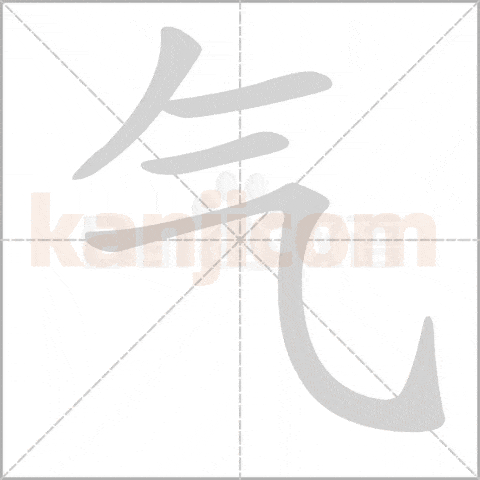

The phrase "genki kanji" (元気漢字) is a fascinating combination of two powerful elements in Japanese culture: the concept of genki (元気), which signifies vitality, energy, and a positive spirit, and kanji (漢字), the Chinese-derived characters used in the Japanese writing system. Together, "genki kanji" embodies the idea of lively, dynamic, and meaningful characters that carry deep cultural and emotional resonance. This phrase not only highlights the beauty and complexity of kanji but also reflects the importance of vitality and positivity in Japanese culture. In this article, we will explore the meaning, significance, and modern relevance of "genki kanji."
Understanding "Genki" and Its Cultural Significance
The word genki (元気) is one of the most commonly used terms in Japanese, and it carries a wide range of meanings. At its core, genki refers to physical and mental energy, health, and a positive state of being. It can describe someone who is energetic, cheerful, or full of life. For example, when someone asks, "Genki desu ka?" (元気ですか?), they are essentially asking, "How are you?" or "Are you in good spirits?"
Genki is deeply rooted in Japanese culture and philosophy. The character 元 (gen) in genki means "origin" or "source," while 気 (ki) refers to "energy" or "spirit." Together, they symbolize the fundamental life force that drives individuals and communities forward. This concept of vitality is central to Japanese values, where harmony, balance, and resilience are highly prized.
The Beauty and Complexity of Kanji
Kanji, the logographic characters adopted from Chinese, are the foundation of written Japanese. They are not merely symbols of sound or meaning but carry rich cultural and historical significance. Each kanji has its own story, often reflecting the natural world, human experiences, or philosophical ideas. For example, the kanji 日 (hi) represents "day," while 月 (tsuki) stands for "moon." Together, they form the kanji 明 (akaru), meaning "bright" or "clear."
The structure of kanji is highly deliberate, with each stroke carrying symbolic meaning. This intricate system of writing is both challenging and rewarding, as it requires not only memorization but also an understanding of the characters' origins and cultural context. Kanji are often used in Japanese names, literature, and art, where their visual and symbolic beauty adds depth and emotion to the language.
The Concept of "Genki Kanji"
When we combine genki and kanji , we get the idea of "vibrant" or "energetic" characters that are not only meaningful but also visually striking. "Genki kanji" can refer to kanji that evoke a sense of positivity, strength, or vitality, such as those related to nature, growth, or personal ambition. For example:
生 (sei) : This kanji means "life," "existence," or "growth." It symbolizes the vitality of living things and the potential for new beginnings.
力 (chikara) : Meaning "strength" or "power," this kanji represents resilience and the ability to overcome challenges.
笑 (warau) : The kanji for "laugh" embodies joy, happiness, and the light-heartedness of life.
In a broader sense, "genki kanji" can also describe the way kanji are used in modern Japanese culture to convey energy and enthusiasm. For instance, businesses, brands, and even individuals often choose kanji with positive connotations for their names or slogans. A company named 元気 (Genki) might aim to project a lively, dynamic image, while a personal name like 大樹 (Taiki), meaning "big tree," conveys strength and vitality.
Modern Relevance and Popularity
In contemporary Japan, "genki kanji" continues to resonate in various aspects of life. Here are some examples of its modern relevance:
Brand Names and Marketing : Many companies use kanji with positive meanings to create memorable and impactful brand names. For instance, the beverage company 元気森林 (Genki Forest) uses "genki" to emphasize health and vitality.
Personal Names : Parents often select kanji for their children's names that reflect desirable qualities like strength, wisdom, or happiness. Names like 健太 (Kenta), meaning "healthy and strong," or 美咲 (Misaki), meaning "beautiful bloom," are popular choices.
Social Media and Pop Culture : In the digital age, kanji are frequently used in social media handles, tattoos, and even anime and manga to convey character traits or themes. For example, a character named 灼灼 (Shaku Shaku) might embody brightness and energy.
Language Learning : For learners of Japanese, "genki kanji" can serve as a motivational tool. Focusing on kanji that evoke positivity and vitality can make the learning process more enjoyable and meaningful.
Conclusion
The concept of "genki kanji" beautifully combines the linguistic richness of kanji with the cultural emphasis on vitality and positivity in Japan. It reminds us that language is not just a tool for communication but also a reflection of a culture's values and aspirations. Whether through brand names, personal identities, or artistic expressions, "genki kanji" continues to inspire and uplift people, embodying the enduring spirit of Japan's vibrant culture. As we embrace the complexity and beauty of kanji, we also honor the timeless connection between language, culture, and the human spirit.